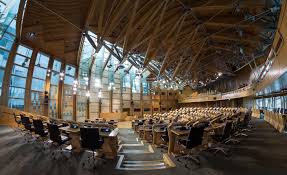On 26 October 2016, the Independent Commission on Parliamentary Reform was established by the Presiding Officer to look at how the Scottish Parliament’s system of checks and balances can be improved to deliver better scrutiny.
In setting up the Commission, Presiding Officer Ken Macintosh said that the Scottish Parliament systems are “not broken but are in need of an MOT”. As such, he instructed the Commission on Parliamentary Reform to investigate:
– the role of Holyrood in scrutinising legislation
– the committee system
– the Scottish Parliament’s independence from the Scottish Government
– how engagement with the wider society and the public can be increased
The Commission undertook a public consultation which aimed to collect evidence on how the system currently preforms, and how it could be improved. The consultation closed in March 2017 and the evidence submitted is available to read online. It includes submissions from members of the public, legal bodies, charities, and both current and former politicians.
The biggest issue highlighted during consultation is that the Scottish Parliament is almost stretched to capacity, and this is expected to worsen as more powers are likely to be devolved to Holyrood after the UK leaves the European Union. The lack of capacity is said to impact Parliament’s ability to efficiently and effectively preform the necessary checks and balances on the Scottish Government – with the lack of time for backbenchers to scrutinise and challenge legislation in the debating chamber being highlighted as one of the biggest issues.
One of the most popular suggestions to solve the capacity problem is increasing the number of MSPs elected to the Scottish Parliament.
In a written submission, former First Minister Henry McLeish argued that the current number of MSPs is “incredibly limiting” and that increasing the number of MSPs is “of vital practical importance and significance if Holyrood was to be fit for purpose in this rapidly changing political landscape”.
Another former First Minister, Alex Salmond, agreed – stating that a “relatively modest” increase in numbers would aid scrutiny.
However, others disagree. Many submissions have pointed out that Scotland already has a good ratio of elected representatives to constituents. Furthermore, the Commission chairman, John McCormick, has also indicated that increasing the number of MSPs will not be included in his recommendations, stating that “much of the evidence we have received would suggest that more MSPs is not the solution”.
So what is the answer?
One of the ideas put forward in the consultation is to increase the hours that MSPs sit in parliament. Currently, MSPs are required to be in Holyrood on Tuesday, Wednesday and Thursday. The three day working plan is designed to allow MSPs to spend time in their constituencies and to ensure Holyrood is “family friendly”. However, some of those who have given evidence believe it is too lax.
Lord Foulkes has argued that the “preoccupation with ‘family friendly’ sitting hours has seriously restricted its effectiveness”. He suggested that sittings should be extended to weekday evenings and a sitting on either Monday or Friday to allow better scrutiny of legislation.
Another approach to increasing capacity came from Green co-convener Patrick Harvie, who suggested that parliament’s issues could be rectified by having more public participation through crowdsourcing, consultations and so-called ‘citizens’ juries’.
Additionally, both the SNP and the Scottish Labour parliamentary groups have backed changing the current rules surrounding chamber procedure – arguing that more flexibility on set speaking times, and reducing ‘allocated slots’ during debates would allow more, and better, interventions to be made. They argue that this will allow more thoughtful and challenging contributions from backbenchers, as well as ensuring that pre-prepared speeches and refusal to allow interventions can be tackled.
With so many options, the nature of the final recommendations will only be revealed when the Commission gives its report to the Scottish Parliament in June. However, with the consensus being that changes have to be made in order to allow better scrutiny over legislation, and more efficient work by MSPs, the Scottish Parliament can expect some significant, if not radical, reforms.





